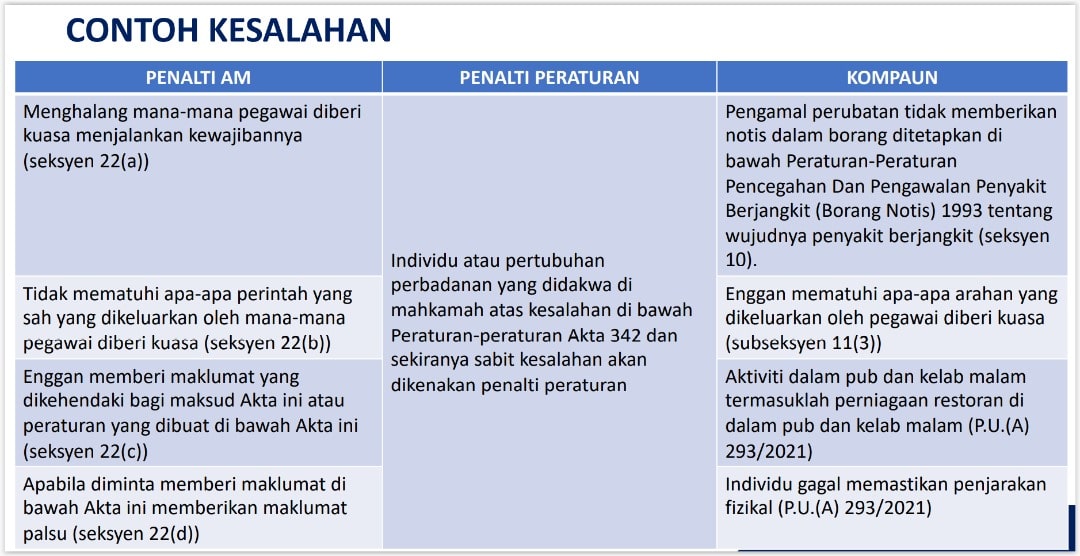KUALA LUMPUR, Dec 15 – Medical practitioners who fail to report suspected or confirmed cases of infectious disease, including Covid-19, are liable for compounds under proposed amendments to Act 342, said the Ministry of Health (MOH).
Under the Prevention and Control of Infectious Diseases Act 1988 (Act 342) amendment Bill 2021, compounds of offences are raised to a maximum of RM10,000 for individuals and up to RM1 million for corporate bodies.
General penalties upon conviction under Act 342 are revised upwards to seven years’ imprisonment, a maximum RM100,000 fine, or both for individuals, as well as a maximum RM2 million fine for corporate bodies.
The Bill amends Section 10(2) of Act 342 — which currently requires medical practitioners to notify government medical officers after treating or becoming aware of the existence of any infectious disease in any premise — to add the phrase “or has reason to believe or suspect”.
The amendment Bill also permits medical practitioners to notify suspected or diagnosed cases of infectious disease “in any form as determined by the Director General”, instead of the current version of Act 342 that requires notification in a form prescribed by regulations under the Act.
At a joint media briefing by Health director-general Dr Noor Hisham Abdullah and MOH’s disease control division director Dr Norhayati Rusli yesterday, a slide from their presentation listed, under examples of compoundable offences, “medical practitioners who do not give notification in a set form under the Prevention and Control of Infectious Disease (Notification Form) Regulation 1993 on the existence of infectious disease (Section 10)”.
Dr Noor Hisham did not provide a direct answer to CodeBlue’s query at the media briefing on whether medical practitioners will be subjected to an individual or institutional compound for failure to report an infectious disease incident as stipulated.
Malaysia has thousands of private general practitioners (GPs) either running their own clinics or are employed by a chain of clinics. Some GP clinics also employ locums, or part-time doctors. Medical specialists working in private hospitals are either employed by the hospital or provide services as consultants.
Dr Noor Hisham’s response suggested that greater discipline in the reporting of confirmed infectious disease cases is needed, especially with Covid-19, as strains such as Delta and Omicron have proven to be more infectious than the original strain of the virus.
“Under this amendment, we are looking at the pandemic situation. In 1988, when this Act was drafted, we did not take into account a pandemic [situation] but more of an epidemic outbreak so now it’s time for us to review back,” Dr Noor Hisham said.
Besides Covid-19, Act 342 also regulates various other infectious diseases, such as dengue, TB, and HIV.
Opposition Leader Anwar Ibrahim said yesterday in a statement that the Opposition bench will not support the Act 342 amendment Bill in its current form, citing deep concerns from both MPs and the public about the possibility of abuse of power, corruption, and double standards in enforcement with the proposed “excessive” fines and compounds. He added that he has informed the Opposition’s stand to Prime Minister Ismail Sabri Yaakob.








